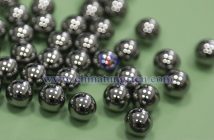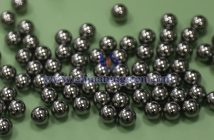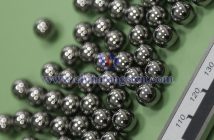Tungsten carbide balls are widely used in valve sealing systems under demanding conditions due to their exceptional physical and chemical properties.
I. Characteristics of Tungsten Carbide Balls
Tungsten carbide (typically based on tungsten carbide WC or titanium carbide TiC, with cobalt, nickel, or other metal binders) possesses the following characteristics, making it an ideal material for valve sealing:
1. High Hardness and Wear Resistance: With a hardness close to diamond (HRC 85–90), tungsten carbide effectively resists wear, suitable for high-flow-rate, particle-laden, or corrosive media conditions.
2. Corrosion Resistance: Tungsten carbide offers excellent resistance to acids, alkalis, salts, and other chemicals, making it suitable for industries such as chemical processing, oil, and natural gas.
3. High-Temperature Stability: It maintains stable performance in high-temperature environments, ideal for high-temperature, high-pressure valves.
4. High Strength and Toughness: Optimized binder ratios provide tungsten carbide balls with both high strength and adequate toughness to withstand significant mechanical stress.
5. Precision Machinability: Tungsten carbide balls can be machined to extremely high roundness and surface finish, ensuring tight contact with the valve seat and enhancing sealing performance.
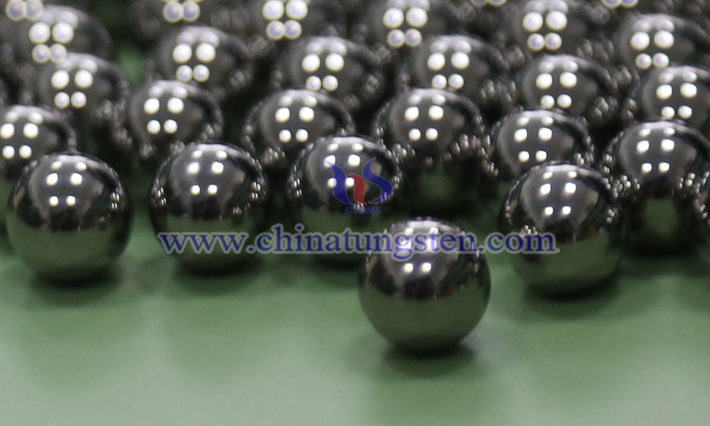
II. Specific Application of Tungsten Carbide Balls in Valve Sealing
Tungsten carbide balls are primarily used in ball valves and other valve types requiring high sealing performance. Specific applications include:
1. Sealing Components in Ball Valves:
In floating or fixed ball valves, tungsten carbide balls serve as the core sealing component, paired with valve seats (typically made of tungsten carbide or ceramic) to form a reliable sealing pair.
The ball’s surface is precision-ground to create a “metal-to-metal” or “hard-to-hard” seal, suitable for high-pressure differentials, high flow rates, or high-temperature environments.
2. Shutoff and Regulation:
Tungsten carbide ball valves enable rapid on-off switching or precise flow regulation, widely used in piping systems requiring frequent operation or accurate control.
3. Special Conditions:
Oil and Gas Industry: In oil and gas pipelines, tungsten carbide ball valves withstand erosion from sandy or hydrogen sulfide-containing corrosive media.
Chemical Industry: Used to handle acidic, alkaline, or high-temperature chemicals, ensuring long-term sealing reliability.
Power and Nuclear Industry: In high-temperature, high-pressure steam or cooling systems, tungsten carbide ball valves maintain stable sealing performance.
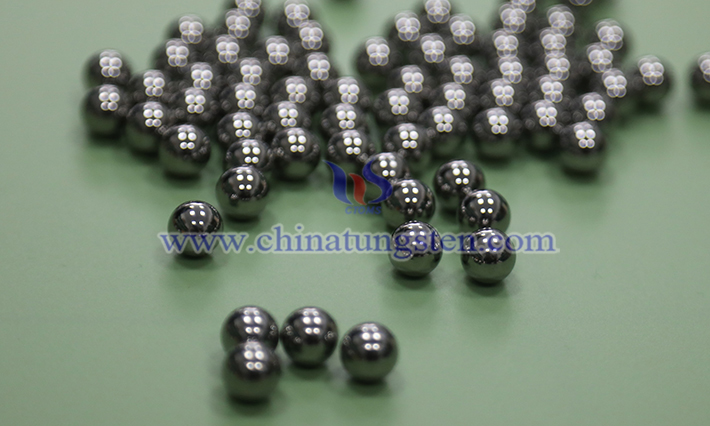
III. Advantages of Tungsten Carbide Balls in Valve Sealing
1. Long Lifespan: The wear and corrosion resistance of tungsten carbide balls significantly extends valve service life, reducing maintenance frequency.
2. High Sealing Performance: Precision-machined tungsten carbide balls, when paired with valve seats, achieve zero or near-zero leakage, meeting stringent sealing standards such as API 598.
3. Adaptability to Harsh Environments: Tungsten carbide balls maintain excellent performance under high-temperature, high-pressure, corrosive, or abrasive conditions.

